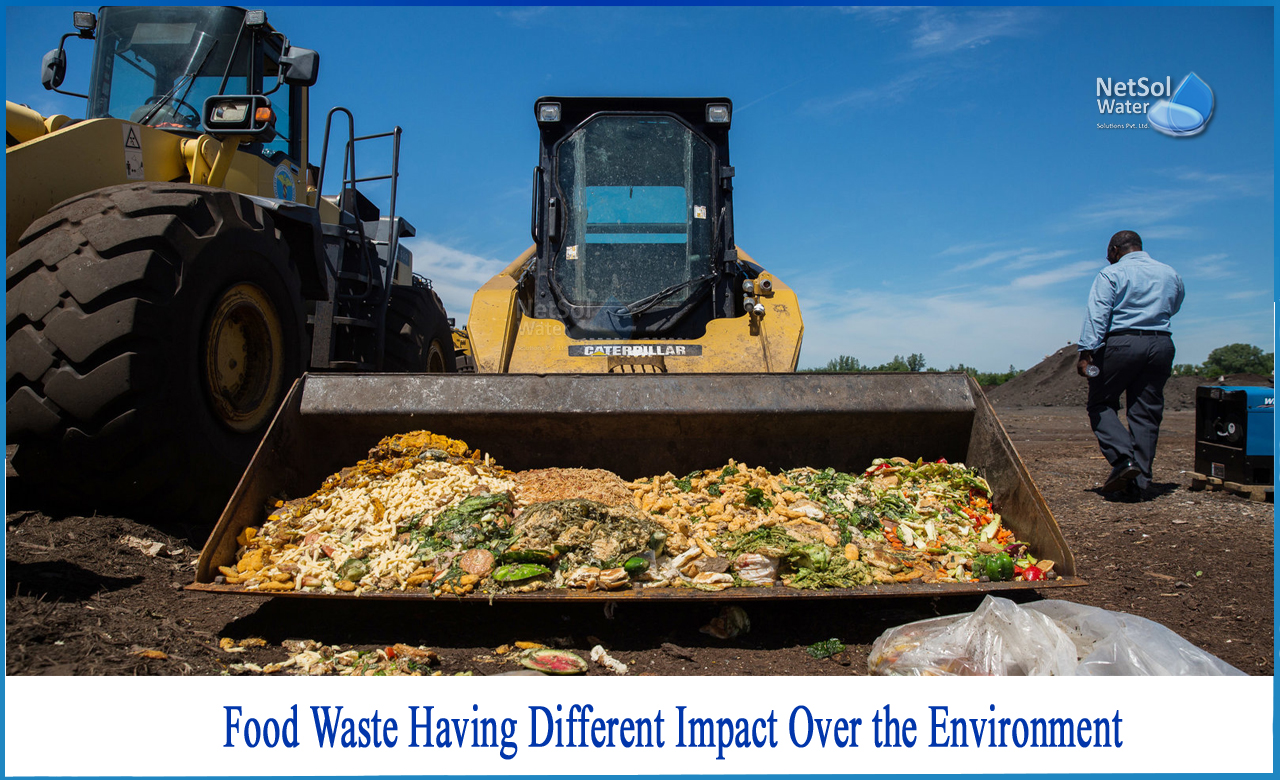What are the impact of food waste over the environment?
Food waste is a substantial source of greenhouse gases, which contribute to climate change. Food waste, which encompasses both food loss and food waste, is not only ethically reprehensible, but it also causes massive economic losses as well as serious environmental harm.
The environmental impact of food waste varies-
1: Methane is generated when food is tossed!
When food is thrown out, it ends up in landfills, where it rots and produces methane, a greenhouse gas 28 times more powerful than carbon dioxide. We can reduce greenhouse gas emissions by nearly 11 percent if we redirect food waste from landfills and into new food waste treatment systems.Methane emitted by food waste lingers in our environment for 12 years, trapping the majority of the sun's heat. Despite its short lifetime, methane generates 20% of greenhouse gas emissions.Fewer methane emissions into the atmosphere result from less food waste.
2: Food waste equates to fuel waste!
We utilize oil, diesel, and fossil fuels to cultivate, transport, store, and prepare food. Harvesting machinery, for example, consumes a significant amount of fuel, as does moving food from the farm to the warehouse, as well as machinery that sorts, cleans, packages, or prepares food. Many of these pieces of machinery require oil, diesel, and other fuels. Furthermore, landfills are always located outside of cities.As a result, trash is delivered long distances using garbage trucks that use petrol or diesel to cars. When these fuels are used, they emit dangerous greenhouse gases into the environment. Food waste wastes a lot of fuel or oil both at the rear and front end, which has a big influence on our environment.
3: Food waste equates to land waste!
In terms of food waste, there are two types of land waste. The acreage used to grow food and the land used to dispose of waste food.
Arable and non-arable land are the two types of land. Crops may be cultivated on arable ground, however non-arable soil is not suitable for agricultural cultivation. These non-arable areas are ideal for cattle farming. Approximately 900 million hectares of non-arable land are used for animal production.Agriculture covers around 11.5 billion hectares of the world's land area. It is not an issue to utilize land for cultivating crops or raising cattle. The main problem is food waste. We seldom fully comprehend what we waste in addition to food.
Every year, around 67 million tons of food are wasted in India, with 70-75 percent of that trash rotting in landfills. This puts a strain on our land, which has already worked hard to generate food for us. If we do not address losses promptly, our capacity to yield over time will deteriorate.
4: Biodiversity is harmed by food waste!
Biodiversity refers to the whole range of life in an eco-system, including all species and types of organisms.Deforestation occurs when cattle are reared or grown. This has an impact on our natural flora and animals. When the cattle population grows, more natural area is converted into pastures. The more animals graze on land, the less arable it becomes. The country loses its natural beauty and diversity. Marine fish are captured in great numbers without comprehending how their population decline affects our bio-diversity. These fish are subsequently discarded by customers, rejected by businesses because they do not satisfy their quality requirements, or simply left to decay in a truck.
5: Food Waste Management Solution
Because there are several ways in which food waste impacts our environment, there are numerous inventive solutions for converting your food waste into renewable energy.
Netsol Water is doing everything possible to spread awareness about food waste and save the environment as well as food by combating the situation by diverting your food waste from landfill to an innovative food waste treatment system in India that not only reduces the impact of food waste on our environment but also provides you with enough energy for cooking/electricity.



